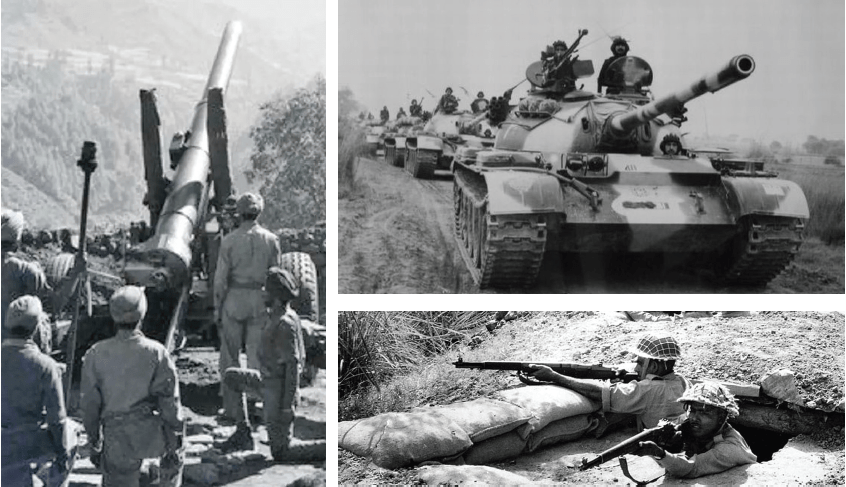Pakistan has made several efforts to integrate Kashmir with itself but the reality is that ‘All of Pakistan’s attempts have failed.’
To integrate Kashmir with itself, Pakistan launched several Operations which proved unsuccessful. Although Pakistan did not gain control of Kashmir, these actions led India to cross the international border on September 6, 1965, marking the formal beginning of war between the two nations. However, the question of “who won the war” remains contested due to several factors. The war ended in a military stalemate, with both countries suffering heavy losses in terms of men, equipment, and resources. No significant territorial gains were made by either side. The war essentially ended with a return to the status quo, with the intervention of international powers (particularly the United Nations), leading to the Tashkent Agreement in January.
The official Pakistani narrative regarding the 1965 war with India often views it as a significant victory for Pakistan, a defensive success against a larger Indian military, portraying it as a symbol of national pride and resilience. The country’s annual observance of Defence Day on September 6 specifically marks the defence of Lahore during the war, celebrating it as a moment when Pakistan successfully withstood Indian aggression. From the Indian perspective, the 1965 war is often regarded as a strategic victory, emphasising that the Indian military successfully halted Pakistan’s attempt to seize Kashmir through Operation Gibraltar. Indian accounts highlight how their forces were able to penetrate deep into Pakistani territory, including areas near Lahore. Many Indian narratives focus on the ceasefire brokered by the United Nations, considering it a point where Pakistan’s ambitions were thwarted, maintaining India’s control over Kashmir.
Now another important question arises: if Pakistan did not gain Kashmir on September 6, then why does Pakistan celebrate National Defence Day every year on this date? To deceive ourselves, we might answer this question to ourselves in the following way: ’While Pakistan did not achieve its goal of gaining Kashmir, the Defence Day is a commemoration of the resilience, courage, and unity shown by the military and civilians alike in defending Pakistan’s sovereignty and territorial integrity during the war. It is a day to remember the martyrs and to celebrate the nation’s ability to stand firm against aggression’
The country hosts ceremonial military parades where senior officials deliver impassioned speeches, soldiers march alongside armored vehicles equipped with the latest missile technology, and fighter jets perform aerial displays. The army’s media wing also urges national media outlets to broadcast promotional videos honoring the armed forces.
This narrative has been embedded in official Pakistani textbooks, which instructed students in both public and private schools that India launched an overtly aggressive attack against Pakistan to further its expansionist goals on the night of September 6.
Despite having significantly fewer military and economic resources than India, Pakistani textbooks claimed that the armed forces, driven by the spirit of jihad, compelled a much larger enemy to suffer a humiliating defeat.
The true reality was that Pakistan did not win the war and it only agreed to a ceasefire with India after realising the possibility of defeat. The fact that India initiated the conflict is also incorrect.
However, the current narrative has now shifted. The revised textbooks for both public and private schools have obliterated the existence of not only this war but also the 1971 war. Teachers have also been instructed to not mention these two wars. The cause for the sudden change in the narrative remains unknown. But one thing is for certain, we cannot ignore our history. As stated by Robert A Heinlein, ‘A generation which ignores history has no past—and no future.’



